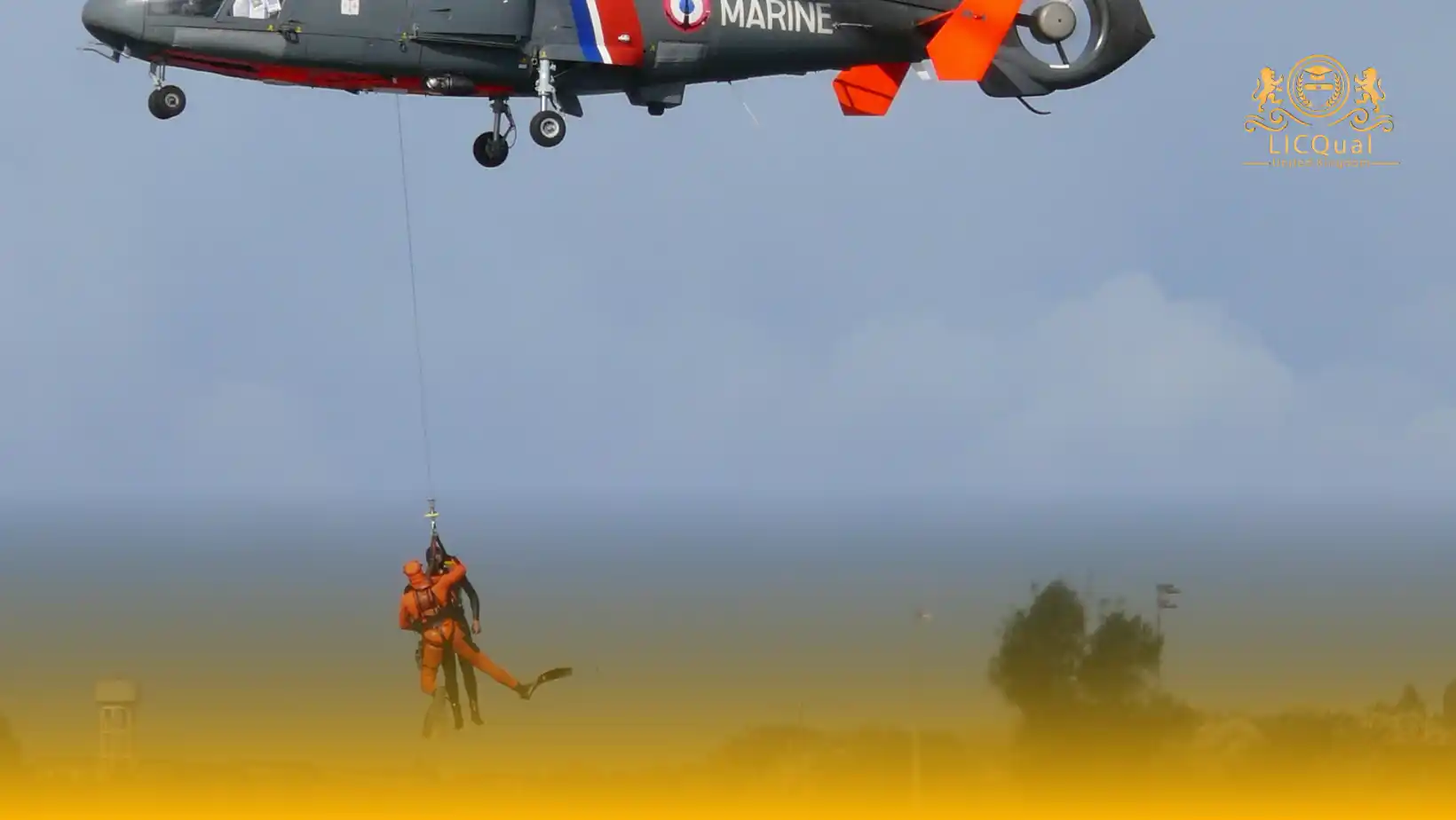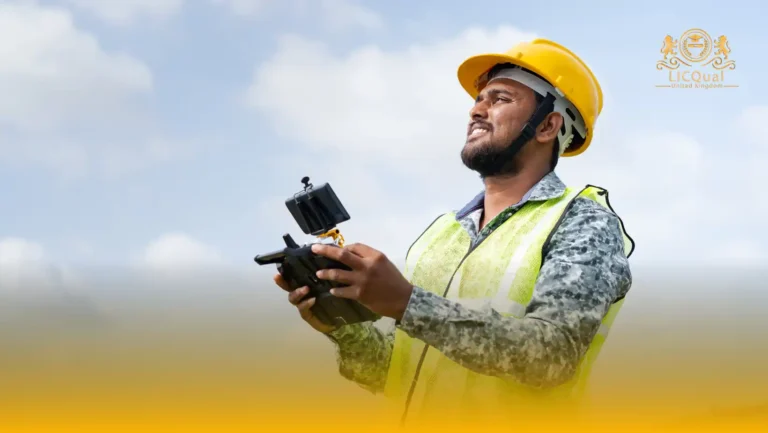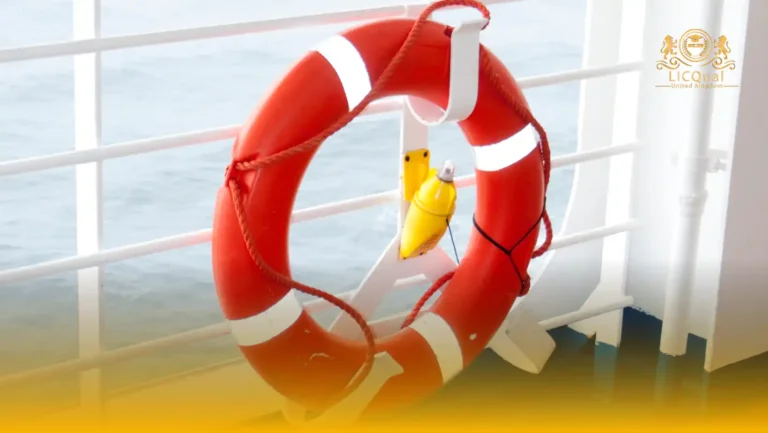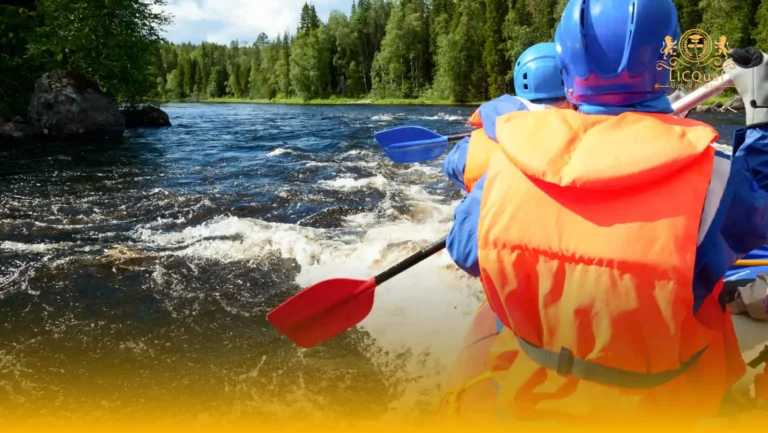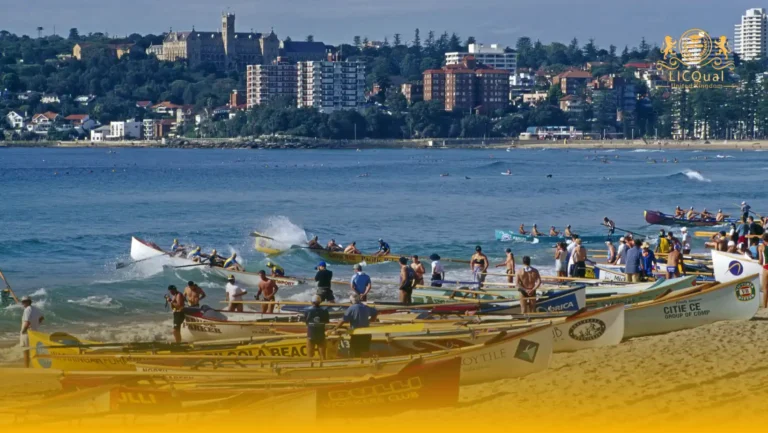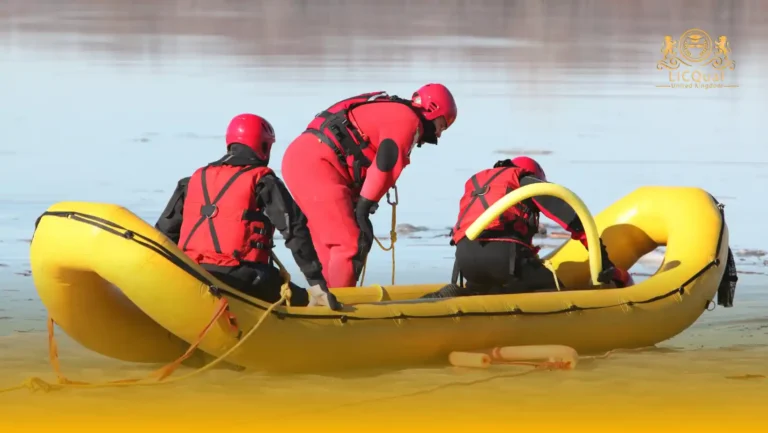The LICQual Level 3 Award in Open Water Emergency Rescue is a professional qualification designed to equip individuals with the essential skills, knowledge, and confidence to respond effectively to emergencies in open water environments. This internationally recognized training focuses on real-life rescue techniques, safety procedures, and critical decision-making required in lakes, rivers, reservoirs, coastal waters, and other open water settings.
With drowning and water-related incidents posing significant global risks, this course provides comprehensive training in hazard recognition, risk assessment, rescue planning, and hands-on rescue operations. Learners will gain expertise in using specialized rescue equipment, applying first aid in aquatic emergencies, and managing incidents in challenging conditions such as strong currents, deep water, and low visibility.
The program follows international safety and rescue standards, making it ideal for emergency responders, lifeguards, law enforcement units, search and rescue teams, outdoor activity leaders, and anyone working or volunteering near open water environments. Through a blend of theoretical learning and practical exercises, participants develop the ability to act swiftly, minimize risks, and ensure the safety of both victims and rescuers.
Upon successful completion, learners will be capable of handling high-pressure rescue scenarios with professionalism, efficiency, and adherence to safety regulations. The LICQual Level 3 Award in Open Water Emergency Rescue is not just a qualification—it is a commitment to saving lives and promoting safer open water activities worldwide.
Course Overview
Qualification Title
LICQual Level 3 Award in Open Water Emergency Rescue
Total Units
6
Total Credits
6
GLH
12
Qualification #
LICQ2200630
Qualification Specification
To enroll in the LICQual Level 3 Award in Open Water Emergency Rescue, applicants must meet the following criteria:
|
Qualification# |
Unit Title |
Credits |
GLH |
|---|---|---|---|
|
LICQ2200630-1 |
Fundamentals of Open Water Emergency Rescue |
1 |
6 |
|
LICQ2200630-2 |
Types and Use of Open Water Rescue Equipment |
1 |
6 |
|
LICQ2200630-3 |
Personal Protective Equipment (PPE) for Open Water Rescue |
1 |
6 |
|
LICQ2200630-4 |
Practical Rescue Skills in Open Water Environments |
1 |
6 |
|
LICQ2200630-5 |
Safety, Risk Assessment, and Incident Management |
1 |
6 |
|
LICQ2200630-6 |
Teamwork, Communication, and Post-Rescue Care |
1 |
6 |
By the end of this course, learners will be able to:
1. Fundamentals of Open Water Emergency Rescue
By the end of this unit, learners will be able to:
- Explain the principles and objectives of open water emergency rescue.
- Describe the stages of drowning and survival timelines.
- Identify the roles, responsibilities, and ethical considerations of rescuers.
- Demonstrate awareness of environmental conditions affecting rescue operations.
2. Types and Use of Open Water Rescue Equipment
By the end of this unit, learners will be able to:
- Identify and describe the main types of open water rescue equipment.
- Select appropriate equipment for specific rescue situations.
- Demonstrate correct handling, operation, and storage of rescue tools.
- Apply maintenance procedures to ensure equipment readiness.
3. Personal Protective Equipment (PPE) for Open Water Rescue
By the end of this unit, learners will be able to:
- List the different types of PPE used in open water rescue.
- Demonstrate proper fitting and adjustment of PPE.
- Inspect PPE for damage and determine its serviceability.
- Explain safe storage and maintenance practices for PPE.
4. Practical Rescue Skills in Open Water Environments
By the end of this unit, learners will be able to:
- Demonstrate safe entry and exit techniques in open water.
- Apply swimming and towing methods with and without rescue equipment.
- Perform rescues for conscious and unconscious casualties.
- Safely recover casualties to shore or rescue craft.
5. Safety, Risk Assessment, and Incident Management
By the end of this unit, learners will be able to:
- Identify common hazards and risks in open water environments.
- Conduct a dynamic risk assessment during rescue operations.
- Implement emergency action plans and incident response protocols.
- Record and report incidents in accordance with established procedures.
6. Teamwork, Communication, and Post-Rescue Care
By the end of this unit, learners will be able to:
- Communicate effectively with rescue team members during operations.
- Apply standard hand signals and verbal commands in open water scenarios.
- Deliver basic first aid and post-rescue care to casualties.
- Provide psychological reassurance and support to survivors.
The LICQual Level 3 Award in Open Water Emergency Rescue is designed for professionals and individuals who want to develop advanced skills in open water safety and emergency response. This Level 3 award is perfect for lifeguards, rescue teams, emergency services personnel, and supervisors responsible for safety in natural water environments. Participants will gain practical expertise in rescue techniques, risk assessment, and team coordination for real-world open water scenarios.
Lifeguards and Aquatic Centre Staff
- Pool lifeguards seeking advanced open water rescue skills
- Supervisors managing safety operations in lakes and rivers
- Staff conducting emergency drills and safety checks
- Individuals handling rescue equipment inspection and use
- Coordinators leading aquatic safety programs
- Professionals ensuring compliance with safety regulations
Coastal and Marine Facility Teams
- Beach safety officers monitoring open water conditions
- Staff overseeing marinas, docks, and recreational water areas
- Professionals conducting emergency rescues in open water
- Team leaders implementing safety protocols and procedures
- Staff managing visitor safety during aquatic activities
- Individuals assessing and mitigating water hazards
Emergency Services Personnel
- Fire and rescue teams specializing in open water emergencies
- Paramedics and first responders enhancing rescue techniques
- Flood response and disaster management professionals
- Staff coordinating open water emergency drills
- Individuals implementing risk assessment and safety planning
- Team leaders supervising water rescue operations
Hospitality and Tourism Staff
- Resort and hotel staff managing lakeside or riverside activities
- Event coordinators running safe open water activities
- Staff ensuring guest safety during aquatic excursions
- Professionals implementing local safety regulations
- Supervisors maintaining health and safety standards
- Staff managing emergency response in recreational areas
Trainers and Educators
- Instructors delivering open water rescue training programs
- Coaches guiding rescue technique and equipment handling
- Professionals developing educational safety content
- Trainers assessing participant skills and knowledge
- Staff mentoring teams in emergency response practices
- Individuals promoting awareness of open water hazards
Government and Regulatory Staff
- Officials enforcing open water safety regulations
- Inspectors evaluating natural water sites for safety compliance
- Professionals developing water safety policies and guidelines
- Staff conducting audits and reporting incidents
- Individuals managing regional or national water safety programs
- Team leaders recommending improvements for safe operations
Aspiring Water Rescue Leaders
- Individuals aiming to lead open water rescue teams
- Professionals seeking career advancement in aquatic safety
- Staff managing long-term emergency response strategies
- Leaders implementing operational safety procedures
- Professionals gaining internationally recognized certification
- Team leaders enhancing practical open water rescue skills
Assessment and Verification
All units within this qualification are subject to internal assessment by the approved centre and external verification by LICQual. The qualification follows a criterion-referenced assessment approach, ensuring that learners meet all specified learning outcomes.
To achieve a ‘Pass’ in any unit, learners must provide valid, sufficient, and authentic evidence demonstrating their attainment of all learning outcomes and compliance with the prescribed assessment criteria. The Assessor is responsible for evaluating the evidence and determining whether the learner has successfully met the required standards.
Assessors must maintain a clear and comprehensive audit trail, documenting the basis for their assessment decisions to ensure transparency, consistency, and compliance with quality assurance requirements.

